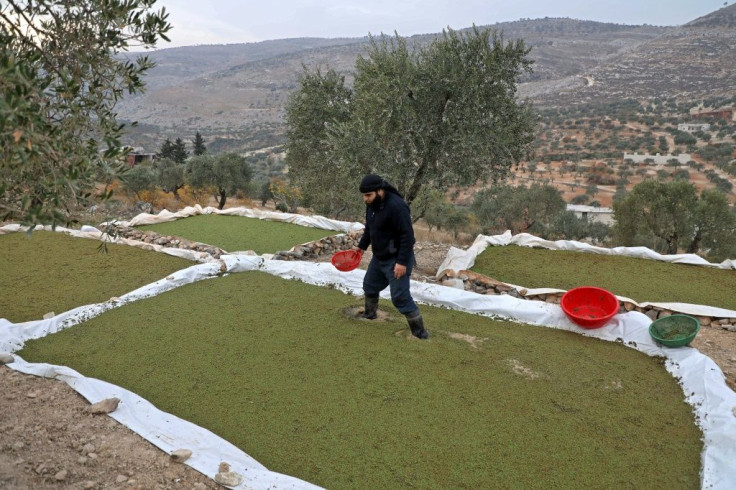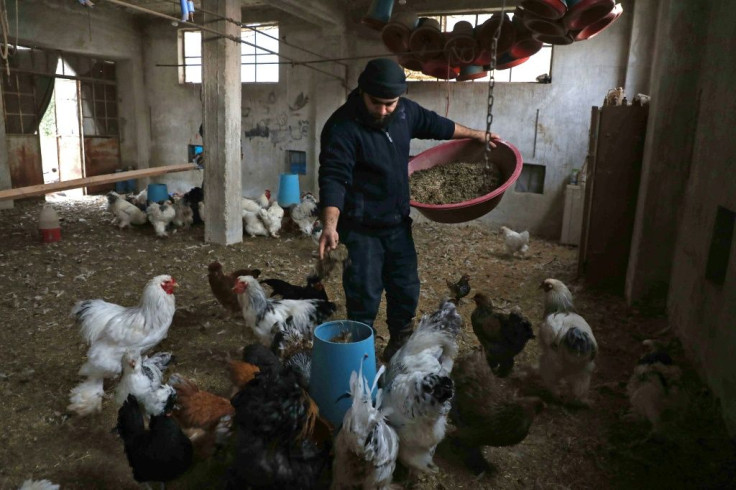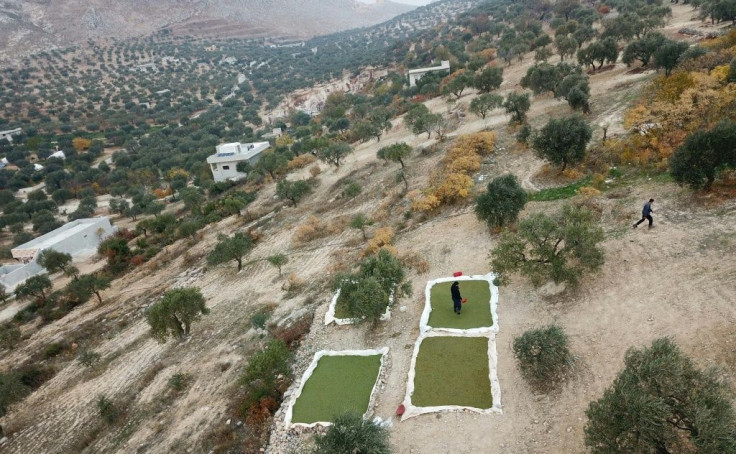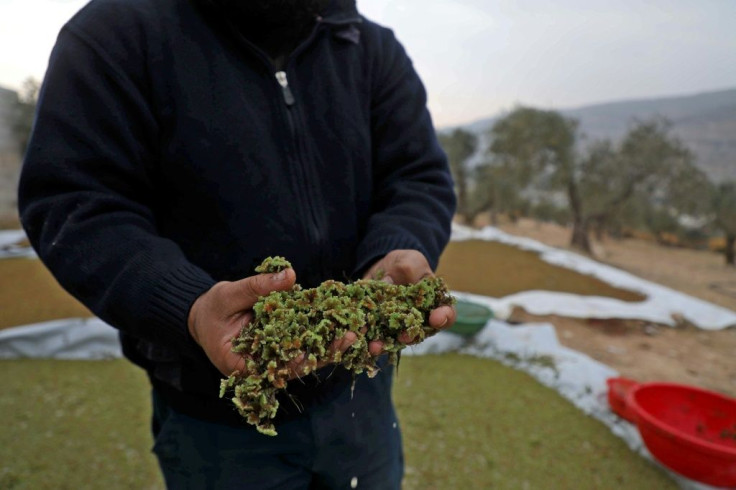Struggling Syria Farmers Turn To Tropical Fern For Fodder
To dodge skyrocketing prices for animal fodder in Syria's last major rebel bastion, farmer Ayman Ibrahim has turned to an aquatic fern used as a fertiliser in Asian rice paddies.
Azolla, which looks more like a pond weed than a fern, is regarded as an invasive plant in much of the world but is used to feed livestock in parts of southeast Asia.
Ibrahim, a former tailor who took up farming in the rebel-held Idlib region after fleeing fighting in Syria's second city of Aleppo in 2016, says the plant has given him huge savings over traditional animal feeds like hay or silage.
Azolla is highly productive with the ability to double its weight in seven days, according to the UN Food and Agriculture Organization.

The plant is rich in proteins and has been used as a feed for cattle, fish and poultry in Vietnam; and for pigs in Singapore and Taiwan.
"We want Azolla to spread here," Ibrahim told AFP on his farm overlooking the town of Kfar Takharim.
"The animals want to eat it," he said, scooping up Azolla weeds from a shallow pool using a kitchen strainer.
"There is a big difference between offering them a green plant and dry feed."

The 25-year-old father of two started raising livestock in the Idlib region after he failed to find work as a tailor.
But in the years since he started, the Syrian pound has plummeted in value, leading to sharp increases in the cost of imported goods.

Compounded by the coronavirus pandemic, the economic crisis has led food prices to increase by 249 percent, plunging millions into hunger.
The cost of animal fodder also rose sharply so Ibrahim embarked on a search for a cheaper alternative.
"After a year of researching on the internet, I found out about the water fern and was able to import it from Egypt via Turkey," he said.
Imported as live plants not as spores, Azolla was at first difficult to transport to Syria, especially since it can't survive long without water, Ibrahim said.
The first four shipments fell through, with the plants arriving dead.

Ibrahim then reduced the size of his order and improved transport so that the plant could arrive before drying out.
His first 10 kilograms (22 pounds) of viable Azolla arrived last June.
"We immediately planted them in the pools," where they have replaced 70 percent of the animal fodder he was previously using.
The cost of feeding his livestock has fallen from $300 a month to $100 at most.
Ibrahim is so satisfied with the results that he started selling his surplus Azolla production to other farmers.
"I was surprised by the high demand," he said.
Nationwide, the economic crisis has led to the loss of 30 to 40 percent of Syria's livestock, according to FAO, with many farmers unable to feed their families let alone their animals.
Ahmad al-Kawan, an agriculture official in Idlib's rebel administration, said the livestock sector in the region had been especially hard hit.
"This has led to a sharp increase in the price of meat and dairy, leading to more food insecurity," he told AFP.
Struggling to survive, Omar Asha too turned to Azolla to cut down the cost of feeding his animals.
The 48-year-old Aleppo native, who now lives in Idlib, managed to get hold of the plant locally and now grows it in ponds to feed to his chickens and sheep.
He said it had reduced his fodder costs by 60 percent.
He also noticed his sheep were producing more milk and gaining weight more quickly than before.
"The best thing about the Azolla plant is that I paid for it only once, when buying it," he said.
"After I planted it, it turned into free renewable fodder."
© Copyright AFP 2024. All rights reserved.











